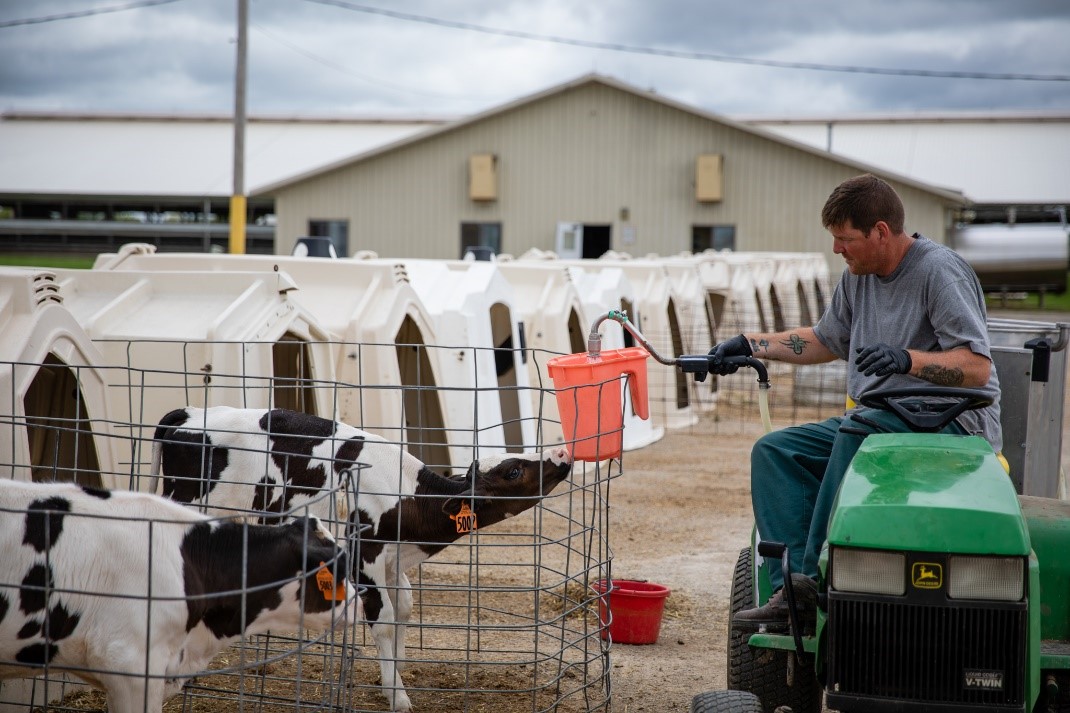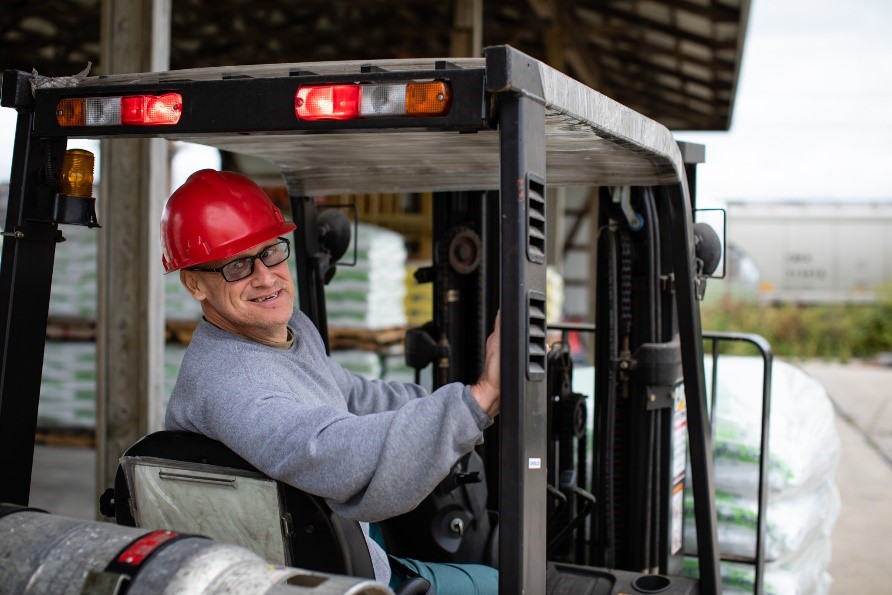Our Mission:
The mission of the Bureau of Correctional Enterprises is to enhance public safety by providing jobs and training to help persons in our care (PIOC) develop marketable skills and gain work experience in financially viable businesses while providing quality products and services to our customers.The four components to BCE are:
-
Agriculture
-
Industries
-
Logistics
-
Transition
BCE's agriculture teams include those working at two farms and a dairy. The farms consist of approximately 2,200 acres and have a herd of about 1,100 cattle. The primary crops are alfalfa, corn, soybeans, and wheat, which are grown primarily for herd consumption. The dairy produces skim milk in 5 gallon and half-pint containers and ice cream and sherbet in individual serving containers.

BCE's industry operations include these 13 teams working inside 12 correctional facilities: Product Development Center, Wood Fabrication, Metal Fabrication, Upholstery, Metal Stamping, Custom Signs, Road and Trail Signs, Sign Hydro-stripping, Printing, Laundry and Linen Rental, Textiles and Embroidery, Durable Medical Equipment Refurbishing and Computer Recycling.

BCE's logistics operations include two warehouses and a small fleet of trucks. BSL is a warehouse that serves as the sales and delivery point for a number of consumable products sold to BCE customers. IDC serves as the central hub for transportation, storage, delivery and installation of BCE products.

BCE's Transition Program is based in the Bureau's central office in Madison and works state-wide to provide services to BCE workers who choose to participate. Bureau employees train and guide a workday average of 415 workers across BCE.
The Bureau contributes to the Department more fully meeting its mission by providing opportunities for PIOC to work, learn and earn. These are opportunities PIOC may use to better prepare themselves to succeed in Department facilities, as well as when they return to their families and communities. BCE workers contribute to institution safety and security in several ways. A PIOC must not have had any major institution rule violations for 12 months before s/he can apply for a BCE job and a BCE worker must remain free of major violations to keep a BCE job. Those requirements, along with the time and energy workers spend on the job, reduce the number and likelihood of unwanted behaviors by BCE workers.

BCE workers invest in learning. A PIOC must have earned a high school diploma or a GED/HSED before applying for a BCE job. BCE workers learn general work skills, like getting to work each day, getting through the work day in spite of challenges with equipment and people, and being productive by completing assigned tasks. Workers learn technical skills, including but not limited to: fork lift operations; metal fabrication and machining; wood fabrication; commercial sewing; custom signs graphic and engineering design; inventory management; and commercial printing. Learning workers are strong job applicants and able to quickly become valuable employees whom Wisconsin businesses want to hire and keep on their teams. BCE work environments mirror, as closely as possible in correctional settings, those in the private sector. Production techniques, costing, and quality control are part of the training experience workers receive during their employment with BCE. The Bureau often works in partnership with institutional vocational training programs to enhance PIOC work skills development and partners with the Department of Workforce Development to provide certified apprenticeships.
BCE workers earn money used to pay financial obligations and prepare for a more successful return to their families and communities. Workers' earnings are used to make court ordered payments of restitution to victims of their crimes and child support to their dependent children. Earnings are also deposited into the worker's release account so s/he has available funds upon release, which add to stability and reduce the likelihood of future criminal behavior.

BCE's Transition Program employees assist current and former workers, if they chose to participate in the program, in a number of ways. For example, workers receive help preparing a résumé. Program employees search for and supply leads on vacant jobs that are near the worker's approved release address and relate as closely as possible to the worker's educational and work experiences. The Program may also fund the purchase of specific tools and/or clothes needed to accept a job a worker has been offered. The Transition Program is the culmination of the worker's BCE experiences.
Thank you for your time and interest in the Bureau of Correctional Enterprises. Please see the most recent
BCE annual report for more information.
To view our products and services, please log on to
www.shopbce.com.

BCE Worker Handbook:
 English or Spanish (Coming Soon)
English or Spanish (Coming Soon)